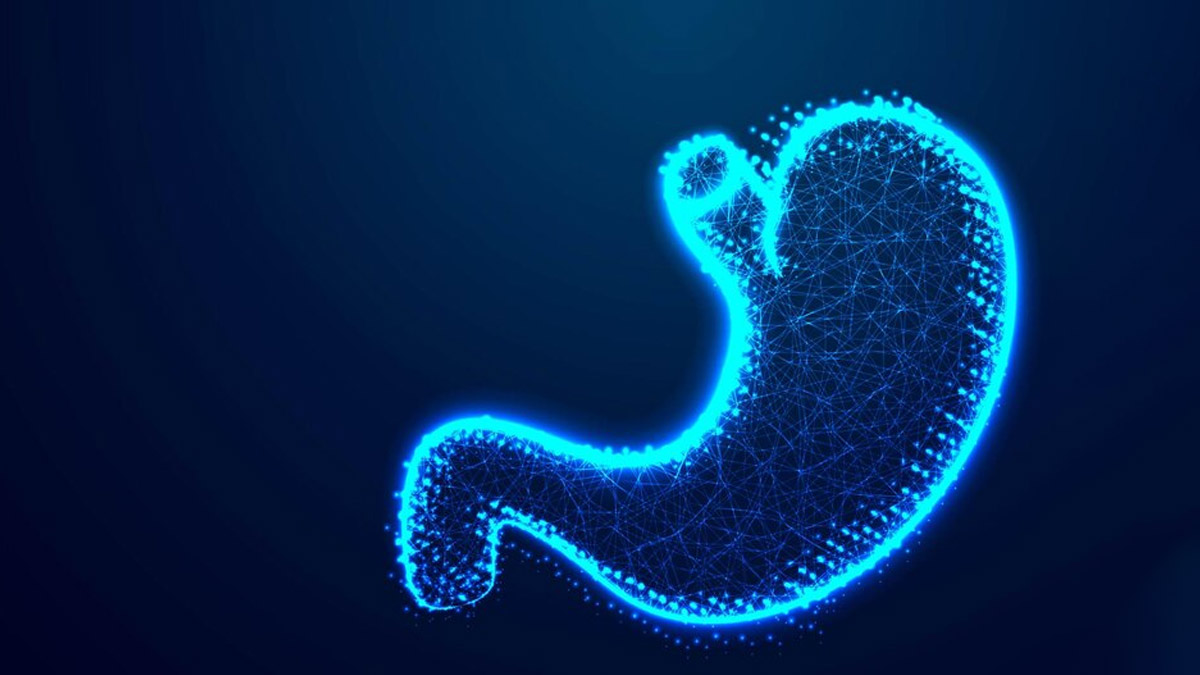
Stomach cancer, also known as gastric cancer, is a serious and often deadly disease that affects the stomach's lining. Early detection is crucial for effective treatment and a better prognosis. Surprisingly, some early symptoms of stomach cancer can manifest on your face, alerting you to potential health issues. Recognising these signs can lead to early diagnosis and treatment, significantly improving the chances of recovery.
Table of Content:-
Unexplained Weight Loss and Facial Emaciation
One of the earliest signs of stomach cancer is unexplained weight loss. While weight loss may be noticeable all over the body, it can be particularly evident in the face. According to Cancer Rresearch UK, facial emaciation, characterised by a gaunt appearance, sunken cheeks, and pronounced facial bones, may indicate that your body is not absorbing nutrients properly. If you notice a drastic change in your facial appearance without any significant changes in diet or exercise, it is essential to consult a healthcare professional.

Persistent Facial Redness
Facial redness or flushing is another symptom that might be linked to stomach cancer. Mount Sinai Health System states that this redness can be due to various reasons, including increased blood flow to the area or inflammation. In the context of stomach cancer, persistent facial redness may be related to systemic inflammation or an immune response to the cancer. If you experience unexplained, prolonged facial redness, it is crucial to seek medical advice to rule out any underlying conditions, including stomach cancer.
Yellowing of the Skin and Eyes (Jaundice)
Jaundice, characterised by the yellowing of the skin and eyes, is often associated with liver problems. However, as per Cancer Research UK, it can also be a symptom of stomach cancer, especially if the cancer has spread to the liver. The liver plays a vital role in filtering toxins from the blood, and if it is compromised, bilirubin (a yellow pigment) can build up, leading to jaundice. If you notice a yellowish tint in your skin or eyes, it is important to get it checked out by a doctor promptly.
Also Read: Stomach Cancer Symptoms: How They Progress Through the Stages

Skin Lesions or Eruptions
Although less common, certain skin lesions or eruptions can be associated with stomach cancer. For example, Leser-Trélat sign, which as per The Journal of Hematology & Oncology involves the sudden appearance of multiple seborrheic keratoses (noncancerous skin growths), has been linked to internal malignancies, including stomach cancer. While these lesions are typically benign, their sudden onset and rapid proliferation warrant a medical evaluation to determine if there is an underlying cancer.
Pale Skin (Pallor)
Pallor, or unusually pale skin, can be a sign of anaemia, which is a common complication of stomach cancer. Stomach tumours can cause bleeding, leading to a significant loss of blood over time. This blood loss can result in anaemia, characterised by a decrease in red blood cells. The reduced oxygen-carrying capacity of the blood can make the skin appear pale or sallow. If you notice that your skin has become unusually pale, it is essential to seek medical advice and get a blood test to check for anemia and other potential causes.
Dark Circles Under the Eyes
Dark circles under the eyes can be caused by various factors, including fatigue, stress, and lack of sleep. However, persistent and severe dark circles that do not improve with rest may indicate an underlying health issue, such as stomach cancer. Malnutrition, anaemia, and systemic illness can all contribute to the appearance of dark circles. If you find that your dark circles are not improving despite adequate sleep and a healthy lifestyle, it may be worth investigating further.
Also Read: Stomach Cancer Awareness Month: Expert Suggests Foods That May Increase The Risk Of Stomach Cancer
While these facial symptoms can be caused by a variety of conditions, it is important not to ignore them, especially if they persist or worsen over time. Early detection of stomach cancer significantly improves the chances of successful treatment and recovery. If you notice any of these signs on your face, along with other symptoms such as abdominal pain, nausea, or difficulty swallowing, it is crucial to seek medical attention promptly. Regular check-ups and paying attention to changes in your body can help catch potential health issues early and ensure timely treatment. Remember, your face can sometimes reveal more about your health than you might think—don't ignore the signs.
Also watch this video
How we keep this article up to date:
We work with experts and keep a close eye on the latest in health and wellness. Whenever there is a new research or helpful information, we update our articles with accurate and useful advice.
Current Version
